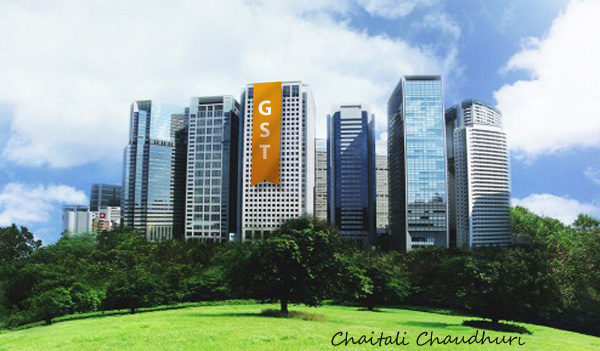The Goods and Service Tax have come into effect from July and it has opened a whole new chapter for the Indian Tax laws. The main objective of this tax is to put an end to the complex tax structure of our country. GST is applicable on real estate market as well. GST on real estate? Yes, you read it right. Here are some things that you must know about this single indirect tax structure’s impact on the real estate sector.
GST ON REAL ESTATE: 7 THINGS YOU SHOULD KNOW
1. The applicable taxes:
Under construction properties will be charged at 18%. However, the effective tax rate will come down to 12%. This is because the government has allowed the deduction of land value. According to some experts, this GST will result in an increase in the cost of land.
2. No need of filing detailed returns in this FY:
The government is adopting a lenient attitude. It will allow the traders and businessmen to submit only a summary of the taxes. They can take the first few months to adjust to the new tax system and they may not file a detailed tax return only for this year.
3. The impact on stamp duty and property tax:
Currently, stamp duty comes under the State Government and property tax under the municipal body. So they are currently not affected by GST. But the Government has plans to eventually consider these two as well in GST. But how long this will take no one knows.
4. GST on Real Estate: Handling tax issues might just get easier
One of the impacts of GST on Real Estate will be that handling of tax issues will become a lot easier. One tax and one rule will make addressing of these issues much simpler and also at a faster rate.
5. Difficulty in compliance in the first year:
The transition is happening from multiple tax systems to a single tax system. So obviously there will be teething problems earlier on. It will take at least a few months for the people to adjust to the new system.
6. GST on Real Estate: Unregistered vendors
It should be noted that the liability of taxes has shifted from the provider to the receiver of the goods and services. Therefore, any purchase from an unregistered vendor will result in a reverse charge on the receiver. This in turn will add to the compliance cost of the receiver. So the problem of unregistered vendors is going to be a huge problem.
7. Transition period will be worst for the developer and the customer:
It should be noted that the transactions that happen during the transition period are going to be a major headache. There will be complications and problems and both the developer and the customer are going to face problems. The calculations are going to be little complex.
To Sum up
GST is going to create a bit of confusion earlier on. But once things settle down and people get used to the new system it will make things much easier. It will surely help in the development of the nation and people will eventually benefit from this new tax system.


Be the first to comment